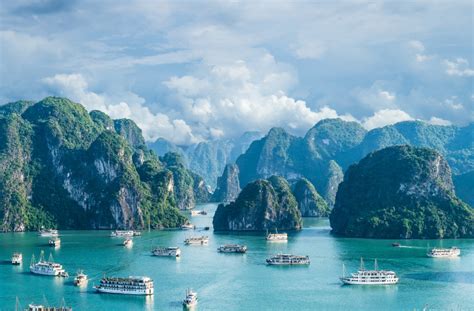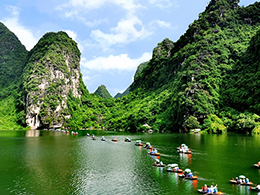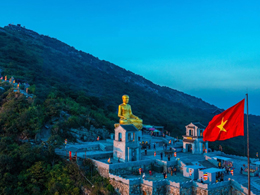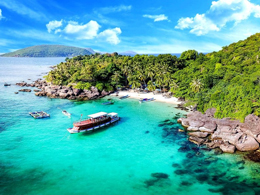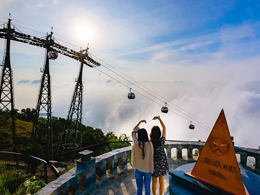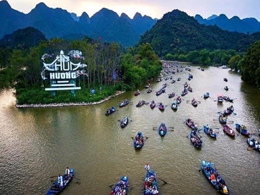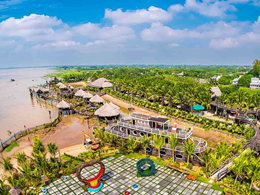
Central Vietnam
? OVERVIEW OF CENTRAL VIETNAM
Central Vietnam (Miền Trung) lies between the mountainous north and tropical south. It features a diverse landscape of beaches, historic towns, imperial cities, and the lush Central Highlands. It’s a favorite for history lovers, nature seekers, and beachgoers alike.
?️ MAJOR TOURIST DESTINATIONS
1. Da Nang
-
Why go: Modern city with beaches, nearby mountains, and cultural sites.
-
Highlights:
-
My Khe Beach (surfing, swimming)
-
Marble Mountains
-
Dragon Bridge (weekend fire & water show)
-
Ba Na Hills & Golden Bridge (giant hand bridge)
-
Hai Van Pass (motorbike scenic route)
-
2. Hoi An (UNESCO World Heritage Site)
-
Why go: Charming ancient town known for lanterns, architecture, and tailoring.
-
Must-do:
-
Stroll the lantern-lit Ancient Town
-
Try local dishes (Cao Lau, white rose dumplings)
-
Take a cooking class or lantern workshop
-
Visit An Bang Beach
-
3. Hue (Former Imperial Capital)
-
Why go: Historic capital with royal architecture, pagodas, and tombs.
-
Top Sites:
-
Hue Imperial Citadel
-
Thien Mu Pagoda
-
Tombs of Emperors (Tu Duc, Khai Dinh)
-
Perfume River boat tours
-
4. Phong Nha – Ke Bang National Park (UNESCO)
-
Why go: Caving and nature adventure hub.
-
Highlights:
-
Son Doong Cave (largest cave in the world)
-
Paradise Cave, Phong Nha Cave
-
Jungle treks, ziplining, kayaking
-
5. Quang Ngai & Ly Son Island
-
Why go: Off-the-beaten-path beaches and volcanic landscapes.
-
Activities:
-
Explore Ly Son’s garlic farms, craters, and temples
-
Beach hopping with fewer tourists
-
6. Nha Trang (coastal city)
-
Why go: Beach resort town with water sports and vibrant nightlife.
-
Top Picks:
-
Long Beach
-
Mud baths and hot springs
-
VinWonders Amusement Park
-
7. Da Lat (Central Highlands)
-
Why go: Cool mountain climate, pine forests, waterfalls, flower farms.
-
Main Attractions:
-
Crazy House
-
Datanla Waterfalls
-
Flower gardens and coffee plantations
-
French colonial architecture
-
? FOOD IN CENTRAL VIETNAM
Central Vietnamese cuisine is spicier and often more complex in flavor. Notable dishes include:
-
Mi Quang – Quang-style noodles (Da Nang specialty)
-
Bun Bo Hue – Spicy beef noodle soup (Hue)
-
Cao Lau – Noodles with pork and herbs (Hoi An)
-
Com Hen – Baby clam rice (Hue)
-
Nem Lui – Grilled pork skewers
-
Banh Beo – Steamed rice cakes with toppings
?️ WEATHER & BEST TIME TO VISIT
-
Dry Season: March to August – warm and sunny, ideal for beaches.
-
Rainy Season: September to December – expect heavy rains, especially in Hue and Hoi An.
-
Best time: March to May and September to November for balanced weather and fewer crowds.
? TRANSPORTATION
-
Airports:
-
Da Nang International Airport (central hub)
-
Phu Bai Airport (Hue)
-
Dong Hoi Airport (Phong Nha)
-
-
Trains: Reunification Express connects major cities (Hue, Da Nang, Nha Trang)
-
Buses & vans: Well-connected but slow
-
Motorbike rentals: Popular for short trips or routes like the Hai Van Pass
-
Taxis/Grab: Available in major towns and cities
? ACCOMMODATION
-
Da Nang & Nha Trang – High-rise beach hotels, resorts
-
Hoi An & Hue – Boutique hotels, heritage homestays
-
Phong Nha & Da Lat – Eco-lodges, guesthouses, hostels
-
Luxury options available in most cities and coastal areas
? TRAVEL TIPS
-
Weather awareness: Check for typhoons from August to November
-
Dress modestly at temples and tombs
-
Tailoring in Hoi An: Plan at least 2-3 days for fittings
-
Cash: Still widely used outside of tourist zones; carry small denominations
-
Language: Vietnamese is spoken; English is common in tourist areas
? CULTURE & FESTIVALS
-
Tet Festival (Lunar New Year) – Late Jan–Feb, celebrated nationwide
-
Mid-Autumn Festival – Lantern displays in Hoi An (Sept–Oct)
-
Hue Festival – Biennial celebration of royal arts, music, and history
-
Hoi An Lantern Festival – Monthly full-moon celebration with floating candles and lanterns
? TOP EXPERIENCES
-
Ride a motorbike along the Hai Van Pass
-
Take a traditional boat ride in Hoi An or Hue
-
Explore caves in Phong Nha National Park
-
Walk the Golden Bridge in Ba Na Hills
-
Soak in a mud bath in Nha Trang
-
Savor street food in Da Nang night markets
-
Visit the serene pagodas and imperial tombs in Hue



